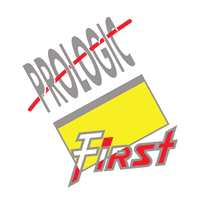Description

Roomito

SymphonyHMS
Comprehensive Overview: Roomito vs SymphonyHMS
As of my last update, Roomito and SymphonyHMS are not well-documented mainstream products or platforms like those from major companies, meaning details about them might be specific to a particular niche or geographic region. Therefore, I can provide a synthesized and generalized overview based on what similar products typically offer. It's important to verify this with more specific or updated sources if available.
a) Primary Functions and Target Markets
Roomito:
- Primary Functions:
- Roomito is likely to offer solutions centered around room management, booking, and hospitality services. These might include hotel management functions such as room reservations, customer relationship management, billing and invoicing, and possibly integration with travel agents and online booking platforms.
- Target Markets:
- The target market for Roomito would typically be hotels, resorts, and other accommodation providers that require efficient room management systems. This may extend to small to mid-sized hotels that are looking for a cost-effective solution to manage their operations better.
SymphonyHMS:
- Primary Functions:
- SymphonyHMS likely refers to a Hospital Management System. It would offer comprehensive solutions for managing various hospital operations, including patient registration, appointment scheduling, billing, laboratory management, pharmacy, and electronic medical records.
- Target Markets:
- The target markets would be hospitals, clinics, and healthcare institutions looking to streamline their internal processes and improve patient care through digital solutions. This could range from large hospitals to smaller private clinics.
b) Comparison in Terms of Market Share and User Base
Since specific market share and user base statistics might not be readily accessible or documented for these products without a targeted research effort, a general observation could be:
-
Roomito: In the hospitality industry, the market is competitive with various solutions available at both ends of pricing and functionality. Roomito would need to carve out a niche based on cost, ease of use, or specific integrations that are beneficial to hotels.
-
SymphonyHMS: In the healthcare sector, SymphonyHMS would compete with well-established systems like Epic, Cerner, or others in the healthcare IT field. The extent of its market share would depend on factors like regional penetration, customer support, pricing strategies, and technological advancements.
c) Key Differentiating Factors
Roomito:
- Likely differentiators for Roomito could include unique integrations with third-party booking platforms, user-friendly interfaces that allow hotel staff to manage bookings effortlessly, or specialized features catering to boutique hotels or specific hospitality niches.
SymphonyHMS:
- Key differentiating factors for SymphonyHMS might include superior interoperability with other health IT systems, robust data analytics for hospital management, compliance with health regulations, and a comprehensive suite of features that cover all aspects of hospital administration in one package.
To obtain detailed information about Roomito and SymphonyHMS, and to verify these general observations, one would need to visit their official websites, contact their sales representatives, or look up customer reviews and case studies.
Contact Info

Year founded :
Not Available
Not Available
Not Available
India
Not Available

Year founded :
Not Available
Not Available
Not Available
India
Not Available
Feature Similarity Breakdown: Roomito, SymphonyHMS
As of my last update, Roomito and SymphonyHMS are both hotel management software systems designed to streamline operations in the hospitality industry. Both aim to enhance guest experience and improve operational efficiency. Here's a breakdown based on the features commonly found in such systems and what might set them apart:
a) Core Features in Common
-
Reservation Management: Both systems offer a comprehensive reservation management system that allows hoteliers to handle bookings, cancellations, and modifications efficiently.
-
Front Desk Operations: Core capabilities include check-in/check-out, room allocation, and guest profile management.
-
Channel Management: Integration with various online travel agencies (OTAs) to update room inventory and pricing in real-time across platforms.
-
Housekeeping Management: Tools to streamline housekeeping tasks, manage rosters, and ensure rooms are cleaned and ready for guests.
-
Billing and Invoicing: Automated billing systems to generate invoices and receipts, often integrating with different payment gateways.
-
Reporting and Analytics: Both Roomito and SymphonyHMS likely offer reporting tools to analyze occupancy rates, revenue, guest demographics, and other KPIs.
-
Guest Communication: Systems to manage communication with guests before, during, and after their stay, possibly including automated emails and SMS.
b) User Interface Comparison
Without access to the latest version of each system, general observations on how such interfaces compare include:
-
User-Friendliness: Both systems aim to provide intuitive interfaces for ease of use by staff at various levels. The layout generally includes dashboards with accessible menus for core functions.
-
Modern Design: Emphasis on a clean, modern aesthetic that is easy to navigate. This typically involves drag-and-drop features, customizable widgets, and dashboards.
-
Mobile Accessibility: Both platforms likely offer mobile-friendly interfaces or dedicated mobile apps, allowing users to access key features on the go.
c) Unique Features
Roomito:
-
Focus on Customization: Roomito might offer more customizable options, allowing hoteliers to tailor the system extensively to their specific operational needs.
-
Local Integrations: Potential for tailored solutions or integrations specific to regional requirements, particularly if the company focuses on a specific geographical market.
SymphonyHMS:
-
Advanced Analytics: SymphonyHMS may provide more advanced, AI-driven analytics or forecasting tools for better decision-making regarding pricing, staffing, and marketing strategies.
-
Comprehensive Ecosystem: If SymphonyHMS is part of a larger ecosystem, it might offer better integration with other hotel and restaurant management tools developed by the same company.
These comparisons are generalized as both systems are frequently updated, and features can vary greatly depending on the specific package or tier a hotelier chooses. For the most accurate and detailed comparison, consulting the latest product documentation or a direct demo would be necessary.
Features

Not Available

Not Available
Best Fit Use Cases: Roomito, SymphonyHMS
Roomito and SymphonyHMS are both software solutions designed to cater to specific needs within the hospitality and healthcare industries, respectively. Here's an overview of their best fit use cases:
Roomito
a) For what types of businesses or projects is Roomito the best choice?
Roomito is designed primarily for the hospitality industry, focusing on properties such as:
- Hotels and Resorts: Roomito can cater to independent hotels, small to medium-sized hotel chains, and resorts that need efficient property management systems (PMS) to handle bookings, front desk operations, and guest services.
- Bed and Breakfasts (B&Bs) and Inns: These smaller establishments benefit from Roomito’s user-friendly interface and cost-effective pricing model, which allows them to manage reservations without the complexity of larger systems.
- Vacation Rentals: Property managers overseeing multiple vacation rental units may find Roomito helpful for handling bookings, guest communications, and property maintenance.
- Boutique Hotels: These establishments, which often prioritize personalized guest experiences, can use Roomito to streamline operations while offering unique services.
SymphonyHMS
b) In what scenarios would SymphonyHMS be the preferred option?
SymphonyHMS is tailored predominantly for the healthcare sector, best suited for:
- Hospitals and Clinics: SymphonyHMS provides comprehensive hospital management systems that include patient management, billing, laboratory information systems, and more, making it ideal for both small clinics and large hospitals.
- Multi-Specialty Clinics: Facilities that offer a wide range of services and need integrated systems to manage patient data, appointments, medical records, and operational workflows.
- Nursing Homes and Long-term Care Facilities: These settings benefit from SymphonyHMS’s capabilities in patient management and care tracking.
- Diagnostic Centers: With systems that manage appointments, patient histories, and lab results effectively, diagnostic centers can streamline operations.
d) How do these products cater to different industry verticals or company sizes?
-
Industry Vertical Adaptation:
-
Roomito: Primarily serves the hospitality industry, focusing on booking management, guest relations, and operational efficiencies. It adapts well to various types of lodging businesses, including hotels, resorts, and vacation rentals.
-
SymphonyHMS: Focuses on healthcare, providing integrated solutions for hospital administration, patient management, and medical record handling. It is highly adaptable to various healthcare settings such as hospitals, clinics, and diagnostic centers.
-
-
Company Size:
-
Roomito: While ideal for small to medium-sized hospitality businesses due to its affordability and scalability, larger hotel chains may also implement it for specific regional operations or boutique properties.
-
SymphonyHMS: Scales well from small clinics to large hospital networks, offering modular solutions that can grow with the institution. Its flexibility makes it suitable for varying sizes, from single-practice clinics to multi-location healthcare providers.
-
In summary, Roomito and SymphonyHMS provide targeted solutions that address the specific needs of their respective industries. By focusing on their core strengths, they can cater effectively to different business sizes and verticals within hospitality and healthcare, optimizing operations and enhancing customer or patient experiences.
Pricing

Pricing Not Available

Pricing Not Available
Metrics History
Metrics History
Comparing undefined across companies
Conclusion & Final Verdict: Roomito vs SymphonyHMS
To provide a conclusive verdict on Roomito and SymphonyHMS, let's break down each of your queries systematically.
a) Overall Value Assessment
Best Overall Value:
- Roomito: This product is often recognized for its user-friendly interface and cost-effective pricing structure, making it an attractive choice for small to medium-sized hotels looking for efficient yet affordable property management solutions.
- SymphonyHMS: Known for its comprehensive feature set, SymphonyHMS caters well to larger establishments that require a more robust system to manage complex operations.
Conclusion: The best overall value depends on the specific needs of the hotel. Smaller hotels with limited budgets might find Roomito to be the best fit due to its affordability and straightforward design. In contrast, larger hotels demanding extensive functionalities may find better value in SymphonyHMS despite potentially higher costs.
b) Pros and Cons
Roomito Pros:
- Cost-Effective: More affordable for smaller and new businesses.
- Intuitive Interface: Easy to navigate, reducing training time.
- Quick Setup: Fast implementation and deployment.
Roomito Cons:
- Limited Features: May lack advanced functionalities required by larger hotels.
- Scalability Concerns: Might not be able to grow with rapidly expanding businesses.
SymphonyHMS Pros:
- Comprehensive Features: Offers a wide range of tools for managing various hotel operations.
- Scalability: Suitable for medium to large hotels with potential to scale.
- Advanced Analytics: Provides more robust analytical tools for data-driven decision-making.
SymphonyHMS Cons:
- Higher Cost: Generally more expensive, potentially limiting accessibility for smaller businesses.
- Complex Interface: Could require more time and resources in staff training and onboarding.
c) Recommendations
Recommendations for Users:
- Assess Needs: Start by clearly defining your hotel’s specific needs. Small operations might prioritize cost and ease of use, while larger entities might focus on in-depth functionalities and scalability.
- Budget Consideration: Smaller hotel operations with limited budgets are encouraged to explore Roomito for its affordability. However, budget shouldn’t be the sole factor—consider the long-term benefits of investing in a robust solution like SymphonyHMS.
- Trial Both Systems: Leverage free trials or demos offered by both Roomito and SymphonyHMS to understand which system aligns better with your workflows and team capacity.
- Scalability and Growth Plans: If you anticipate rapid growth, leaning towards SymphonyHMS could provide the scalability needed in the future, despite a higher initial investment.
- Training and Support: Consider the level of training and support required for full implementation. SymphonyHMS might necessitate a more structured onboarding, which could be advantageous in the long run despite the initial time investment.
In conclusion, both Roomito and SymphonyHMS have their distinct advantages. The decision should be based on operational needs, budget constraints, and long-term growth plans. For smaller, budget-conscious operations, Roomito is appealing, while larger, growth-oriented hotels may benefit more from the expansive capabilities of SymphonyHMS.
Add to compare
Add similar companies



